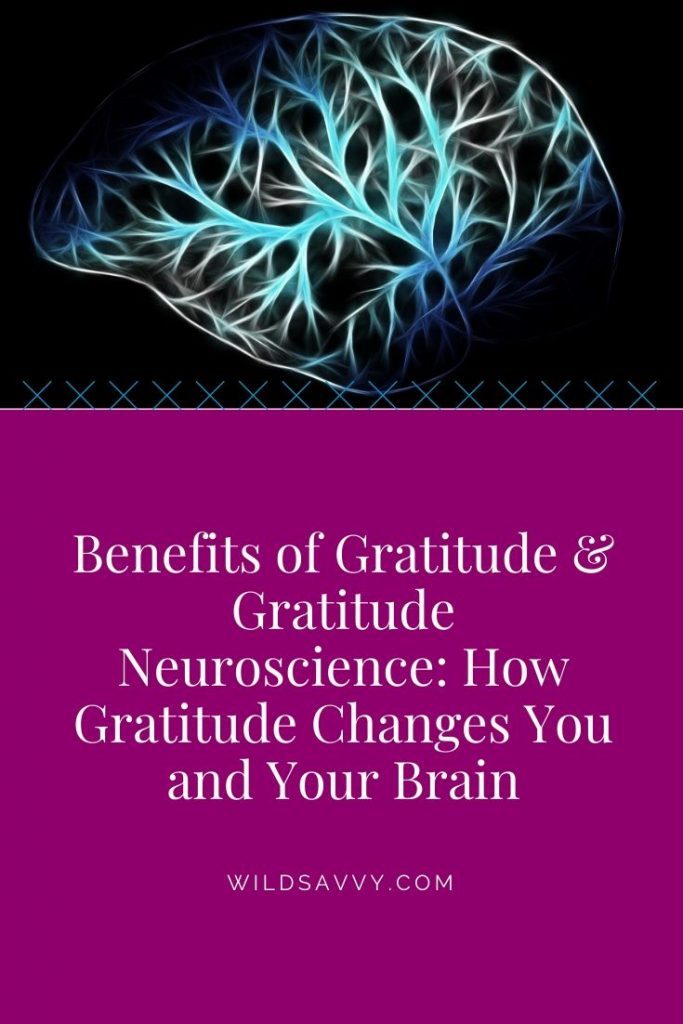Who would think neuroscience and gratitude would be used in the same sentence? One sounds, well, science-y. And the other is an emotion. Could two things that seem so different actually be related?
Yep! They sure are.
I’ll just keep it simple though because, even though I did get a Chemical Engineering degree… that was a VERY long time ago and I’m not so technical these days. Besides, I took one very basic psychology class and that’s the extend of my neuroscience background 🙂
Here’s the bottom line… Feeling gratitude stimulates neurotransmitters in the brain, specifically dopamine and serotonin. These are the feel good neurotransmitters, so when they’re stimulated, guess what happens? Yep, you got it… you feel good!
I have personally experienced the benefits of gratitude, so I don’t need scientific data to back it up… for myself. Maybe you do, so there you have it and there’s more.
I do some daily rituals that keep me feeling grateful. It keeps my energy vibing high and I notice my life reflects that positively. When I slack off and don’t do the rituals… which does happen… I notice my vibe drops and THAT shows up in my life. It can show up as feeling stuck, not moving forward, chaos, stress, disorganization, not having enough time, not getting things done… you get the idea. It shows up.
And when I take a moment to step back and see what’s going on, I realize I haven’t been making a point to FEEL gratitude. So I switch back to it and I notice a difference in my life… pretty much immediately.
So, like I said, I don’t need the science to back it up. My experience tells me it’s true. Maybe you want the data. So I found some.
Surprisingly, there are quite a lot of studies on the subject. I won’t refer to them all… because there’s too many.
Here’s an example:
One study, by Philip Watkins, published in The Journal of Positive Psychology, shows gratitude helps bring closure to unpleasant memories. The study involved participants recalling a memory that was still upsetting to them, then having them do three writing exercises. One of the exercises involved writing about the positive parts of the experience and what they can now feel gratitude or because of that experience. They were not instructed to cover up nor deny the negative aspects at all, just add the positive and what they can feel grateful for. The results of the study show these participants felt more closure.
Another study was done by Robert Emmons of Berkeley – he’s done quite a few, by the way. He found that even people with severe neuro-muscular disorders could feel and benefit from gratitude. It has to be tough to feel gratitude when you’re in massive pain, yet he shows it’s possible and it actually improves physical health.
There are lots of benefits of gratitude and many have scientific studies to back them up.
People have reported expressing gratitude consistently has improved…
- Physical — stronger immune system, better sleep, lower blood pressure;
- Psychological — more positive emotions, more energized, more joy;
- Social — more helpful and compassionate, more forgiving, more outgoing.
A 2011 study published in Applied Psychology: Health and Well-Being shows that writing in a gratitude journal improves sleep. Stay tuned for a mini course to walk you through how to do this… coming on Black Friday week.
This month’s theme is gratitude, so I’ll be writing more on the topic the next few weeks.
Join us in our Facebook Group community – Wild Savvy Self Love Squad – for discussion, support and more at https://www.facebook.com/groups/wildsavvy/

